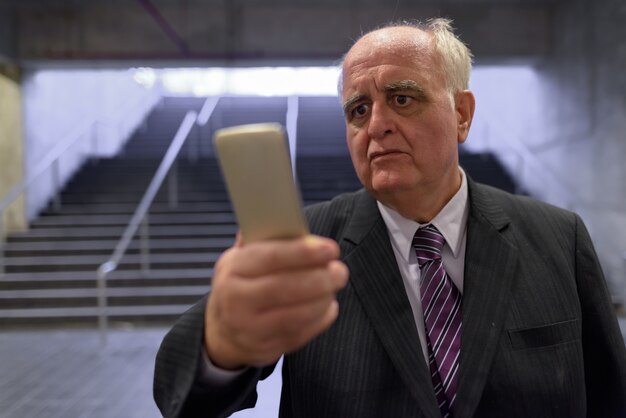Imagine receiving a message that looks so genuine that you almost believe it comes directly from the Foreign Secretary. Sounds scary, doesn't it? That's exactly what's happening more frequently at the moment - with fake news from foreign ministers that are staged with the help of artificial intelligence. This modern fake news is not only dangerous, but also quite cleverly done. That's why we need to know how to recognise these deceptions and protect ourselves against them. Fasten your seatbelts, because in this article we take a closer look at fake foreign minister news - and also have the best tips to avoid falling for the fake postman.
Fake foreign minister messages - the new danger in the digital age
With some messages, you could be forgiven for thinking that they come from the FBI itself, but sometimes they are just sophisticated AI tools. The scenario: Fraudsters use fake audio and text messages to impersonate high-ranking politicians such as foreign ministers. The aim is usually to cause unrest, spread false information or even worse - to sell insider knowledge that doesn't even exist. And it all happens in real time, at lightning speed and looks so real that you hardly notice the difference.
How do these fake reports actually work?
The trick is based on state-of-the-art AI, which makes it possible to manipulate voices and texts so that they are almost indistinguishable from the real thing. Fake audio recordings can be used to imitate voices, while fake text messages are produced in a matter of seconds. Fraudsters often use ready-made scripts that they feed with AI tools. The result: messages that sound so genuine that no one but a real spy has a chance of seeing through them.
The use of AI in fake foreign minister news
Artificial intelligence is a great invention - as long as it is used for good. Unfortunately, criminals are using it to create deceptively real fake messages. They mainly use deepfake technologies that can manipulate voices and images. The result: a fake foreign minister who writes letters in person, appears at press conferences or gives the impression of being real over the phone. This makes it all the more important to be vigilant and check the veracity of news.
Fake foreign minister news in everyday life - What does this mean for us?
Whether in private, in political discussions or in business decisions - fake foreign minister news can lurk everywhere. It becomes particularly dangerous when political experts, journalists or even company CEOs fall for fake news. In the worst-case scenario, this can lead to wrong decisions being made that cause entire markets to falter or trigger diplomatic crises. In other words, this fake news is a ticking time bomb that we absolutely must understand and defuse.
Why is fake foreign minister news so dangerous?
Because they have the power to manipulate opinions, increase political tensions or even spark international conflicts. And all through AI-generated fake news that is almost indistinguishable from the real thing. When politicians or government agencies are confronted with such fake news, the consequences can be enormous - from a loss of trust to real international escalation.
How do you recognise fake foreign minister news?
This is where the art comes into play - the art of recognising them correctly. Fake reports typically have a number of clues: Unusual speech patterns, strange wording, inconsistent facts or missing sources. The audio quality of fake voices is also sometimes still untrained, which is a problem, but AI-supported deepfakes in particular are becoming increasingly realistic. That's why you should always be sceptical about news that is formulated too well, too unusually or too dramatically to be true.
Tips to expose fake foreign minister news
- Check the source: Did the report appear on an official website or a well-known medium?
- Compare with official communications: Is there confirmation from authorities or the government?
- Pay attention to the language: Do the texts sound bumpy, exaggerated or unnatural?
- Listen carefully to the audio: voices, background noises and sound quality can be indications of fakes.
- Use fact-checking sites: There are special platforms that expose and quickly uncover fake news.
How do you protect yourself from AI-generated fake news?
The best weapon against fake foreign minister news is "vigilance". Remain sceptical of sudden, emotionally charged reports. Check sources, use fact-checks and scrutinise the authenticity of the news. And of course - stay cool, because panic only helps the scammers! The more you practise recognising fake news, the safer you are from jumping on the fake train.
Future prospects: Will fake foreign minister news get better or worse?
With the rapid development of AI technologies, we can expect fake news to become increasingly realistic and difficult to recognise. This means that the danger is increasing and our ability to expose fake news is also being challenged. At the same time, tech companies and authorities are working on better detection tools to identify and neutralise fake news at an early stage. It sounds like an eternal game of cat and mouse, where the best protection is knowing the tricks of the scammers.
What can governments and tech companies do about it?
Many are relying on stronger laws, improved AI detection technologies and public awareness campaigns. It is particularly important that we all get involved: Scrutinise information, check sources and don't be misled by fake news. This way, our own information base remains stable - and the fakes don't stand a chance.
What role do the media play in the fight?
Media organisations must strengthen their own sources of facts and work transparently. It is also crucial to react to fake news as quickly as possible. After all, the more people rely on the truth, the more difficult it will be for fake news to spread.
